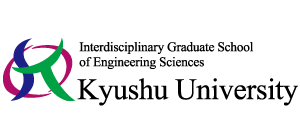Policies - IGSES
Educational and research goals
The Interdisciplinary Graduate School of Engineering Sciences (IGSES) comprises six different majors: Science and Engineering of Materials and Devices, Chemistry and Materials Science, Device Science and Engineering, Plasma and Quantum Science and Engineering, Mechanical and Systems Engineering, Earth System Science and Technology . The IGSES educational research aims are to advance the study of materials, the environment, and energy-related areas as well as an integration of these fields. IGSES also aspires to accomplish the mission of training researchers and engineers who (1) are highly skilled in problem solving and have a strong potential for further research; (2) demonstrate a high level of environmental scientific expertise applied to eco-conscious technologies in the fields of materials, energy, environmental science, or closely related subject areas; and (3) are poised to thrive internationally to design a sustainable development-based society.
Admissions policy
The IGSES is intended for Japanese and foreign university students, and for persons who already have an occupational experience. Strong interest and awareness of harmony with the environment are required in the field of science and technology focused on materials, energy, and the environment. The ideal candidate should also possess a strong determination for studies and adequate academic skills.
Curriculum policy
At IGSES, we are committed to providing a fair and comprehensive education to each student by implementing the following features: (1) academic counseling and keeping students fully informed of the grading criteria and (2) a consistent progression of classes and content. We have enriched our class curriculum by implementing an organic and systematic education program within a five-fold interdisciplinary specialty framework. The IGSES’s objective is to train researchers and engineers who (1) are highly skilled in problem solving with strong potential for further research; (2) demonstrate a high level of environmental science expertise applied to an eco-conscious technology in the field of materials, energy, or closely related subject areas; and (3) are poised to thrive internationally to design a sustainable development-based society.
Graduation requirements
At IGSES, we award graduation certification and recognize course completion for all students who successfully pass their final exam, whose research papers have been accepted, who have received the necessary research guidance and who have acquired the prescribed credits within the allocated period of course time.
